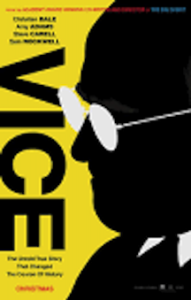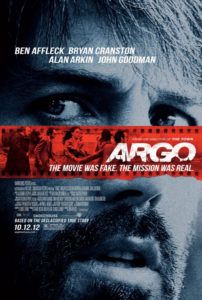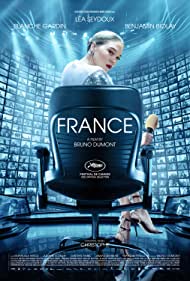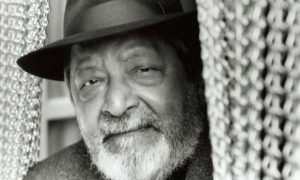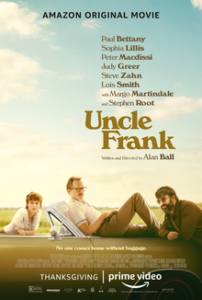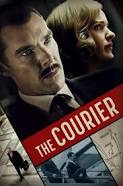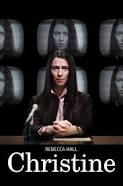
Christine
World premiere Jan. 23, 2016, Sundance Film Festival
Written by Craig Shilowich
Directed by Antonio Campos
Starring Rebecca Hall, Tracy Letts, and Michael C. Hall
Available on various streaming services, including Netflix and Amazon Prime
I heard about this movie in 2016, when it premiered at Sundance. It sounded like an exploitation project, so I decided not to watch it. Then, last week, it appeared in my “recommended for you” feed from Amazon Prime. Something about the poster – this young woman sitting, Mona Lisa-like, at a news desk in front of a camera – drew me in.
It was riveting. Disturbing. Moving. Credit goes to Antonio Campos, who directed it, and to an excellent cast. But mostly to Rebecca Hall, who did an amazing job depicting the protagonist.
The True Story the Movie Was Based On
Christine Chubbuck was a reporter at a Sarasota television station, where she handled community affairs news. In 1974, at the age of 29, she killed herself on air.
During the first eight minutes of her program that morning, Chubbuck covered three national news stories and then a shooting at a local restaurant the previous day. The film reel of the shooting had jammed, so Chubbuck shrugged it off and said on-camera, “In keeping with the WXLT practice of presenting the most immediate and complete reports of local blood and guts news, TV 40 presents what is believed to be a television first. In living color, an exclusive coverage of an attempted suicide.” She then she pulled a gun from her purse and shot herself in the head.
Interesting
Craig Shilowich, the producer and screenwriter, decided to make the movie after reading Chubbuck’s story online. It fascinated him, he said, because he had struggled with depression for seven years in the wake of 9/11. He was especially interested Chubbuck’s pre-suicide struggle. He interviewed some of her former newsroom colleagues and read news stories to build what he could with hard facts. The rest, he said, was imagined.
Critical Reception
The movie, not surprisingly, received medium to very favorable reviews. But Rebecca Hall’s performance was praised universally. She was nominated for dozens of (and won several) best-actor awards at various film festivals.
* “Far from the austere death march it might threaten to be on paper, this is a thrumming, heartsore, sometimes viciously funny character study, sensitive both to the singularities of Chubbuck’s psychological collapse and the indignities weathered by any woman in a 1970s newsroom.” (Guy Lodge, Variety)
* “Hall makes it impossible to look away from this portrait of a woman brought to the heartbreaking conclusion that she’s beyond hope.” (David Rooney, Hollywood Reporter)
* “Rebecca Hall gives one of the great performances of the year… in Christine, an intense, stomach-turning, unblinking drama.” (Richard Roeper, Chicago Sun-Times)
* “A compelling drama that is simultaneously respectful and provocative.” (Tara Brady, Irish Times)
You can watch the trailer here.
And click here for an interview with Rebecca Hall about the life of Christine Chubbuck.
About Christine Chubbuck
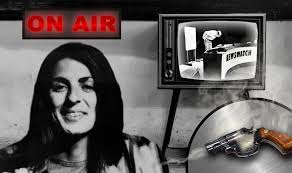
Chubbuck spoke to her family at length about her struggles with depression and suicidal tendencies. She had attempted to overdose on drugs in 1970 and frequently referred to that event.
Her focus on her lack of intimate relationships is generally considered to be the driving force for her depression. Her mother noted that “her suicide was simply because her personal life was not enough.” Her brother Greg agreed that she had trouble connecting socially. He believed her constant self-deprecation for being “dateless” contributed to her ongoing depression.
About Rebecca Hall

Rebecca Maria Hall is an English actress and film director. She made her first onscreen appearance at age 10 in the 1992 television adaptation of The Camomile Lawn, directed by her father, Sir Peter Hall. She got her breakthrough role in Christopher Nolan’s thriller The Prestige. In 2008, she starred in Woody Allen’s Vicky Cristina Barcelona, for which she received a Golden Globe nomination for Best Actress. Hall then appeared in a wide array of films.
Hall made her directorial debut with Passing (2021), receiving critical acclaim. She has also made several notable appearances on British television. She won the British Academy Television Award for Best Supporting Actress for the 2009 miniseries Red Riding: 1974. In 2013, she was nominated for the British Academy Television Award for Best Actress for her performance in BBC Two’s Parade’s End.

 MarkFord
MarkFord
